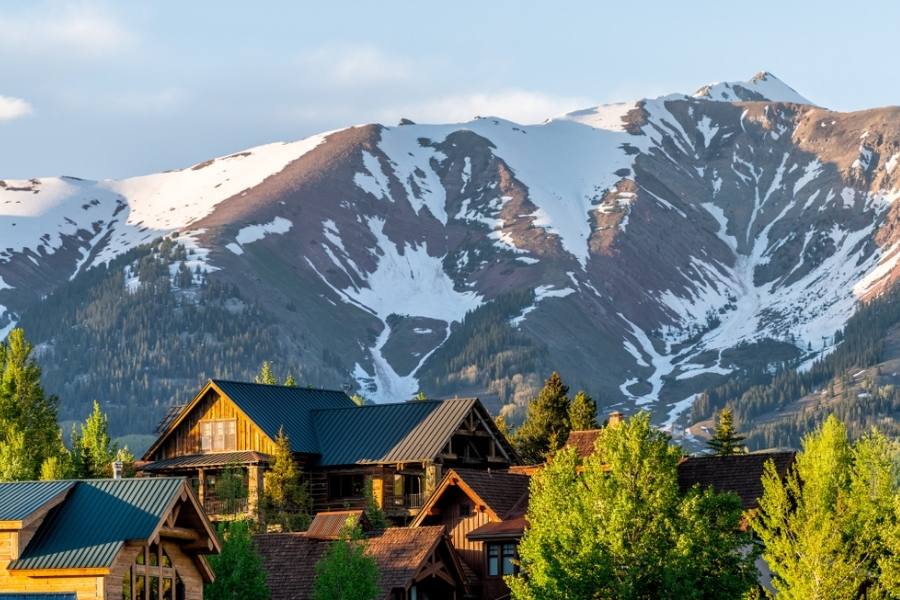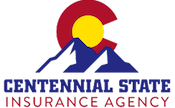
Insurance is a part of everyday life. You need health insurance, renters insurance, personal property insurance, boat insurance, etc. Perhaps one of the most important types of insurance is home insurance.
However, the price of insurance in Colorado compares to the rest of the United States is shockingly high. Nonetheless, if you are taking out a mortgage to purchase a home in Colorado, or have already bought a house using a mortgage, mortgage companies almost always require a home insurance policy in some form.
The requirement of, or need for, home insurance is often frustrated in Colorado mountain towns. Many mountain residents are located within a high-risk wildfire zone in Colorado. Shockingly, many insurance companies can frustrate Colorado mountain town residents because they either refuse to cover mountain homes or charge extremely high premiums, meaning these residents are unable to find an insurance company that is willing to cover them or will be forced to pay high premiums. All in all, homeowners insurance is necessary for any home, but can be difficult or expensive to locate in Colorado mountain homes.
Colorado Home’s High Insurance Cost
In 2014, Colorado was shown to have the highest insurance premium in the entire United States. In fact, according to Policygeniues’s data, “[t]he statewide average cost of homeowners insurance in Colorado is $2,270 per year.”
How much your home insurance premium will cost in Colorado depends on how your house is built, where your house is located, your policy’s deductible amount, and your claim and credit history.
Issues with Insurance Companies in Colorado Mountain Towns
As wildfire becomes more common and more deadly, in the Western part of the United States, homes located in Colorado’s mountain towns find it more difficult to find insurance. This is especially true in the mountain homes that are surrounded by the beautiful Colorado forests or can be reached only through back roads, or on a mountain slope where a wildfire can easily run. This may sound like an easy enough area to avoid; however, this is also one of the most scenic and popular areas for individuals to live in. In 2018, the Colorado State Forest Service reported that about one-half of Colorado’s population lives in urban areas which are also affected by wildfires.
Indeed, the risk of wildfire for homes located in Colorado mountain towns is the primary reason insurance premiums are so high. KOAA News5 reported that “[s]ome insurance companies won’t even do business in . . . Colorado anymore because of the wildfire and weather destruction we’ve been known to experience.” The damage caused by wildfires in Colorado is causing an astronomical loss to insurance companies. The Waldo Cayon Fire in Colorado Springs resulted in 6,648 claims filed, costing $527 million in damages, and burning down 346 homes. The High Park Fire resulted in 1,293 claims filed, costing $132 million in damages, and burned 259 homes. More recently, the 2020 East Troublesome Fire in Grand County, Colorado, resulted in 1,602 auto and homeowner insurance claims filed, 366 homes destroyed, and a whopping $543 million in damages.
Currently, Colorado is experiencing a catastrophic wildfire: the Marshall Fire. To date, the Marshall Fire has burned down 6,200 acres. The Marshall Fire has damaged or destroyed 1,725 homes within the burn area; 1,000 of such homes are in Superior, Louisville, and the remaining homes lie in unincorporated areas of the state. The Boulder County Assessor has estimated the current losses from the Marshall Fire are at $513 million. The insurance industry has experienced a $1 billion impact as a result of the Marshall Fire. This catastrophic impact of the Marshall Fire on Colorado is expected to be felt throughout the state. Insurance rates are expected to rise overall because the insurance industry is experiencing such a massive loss from the Marshall fire.
However, Colorado citizens who live in mountain towns are already experiencing difficulties in acquiring insurance even before the current Marshall Fire. Carole Walker, the executive director of the Rocky Mountain Insurance Information Association (RMIIA), reported that “[y]ou will pay a higher price to live in a high-risk wildfire area. You may have to shop around more for that insurance. You may be pushed to a higher risk insurer where in the past you could just go with your regular insurer that you’ve had for 20 years.” What’s more, some insurance companies won’t even cover your home if you live in what they dub an “extreme risk” for wildfires area.
Additionally, even if those living in mountain townhomes have homeowners insurance, they may still be underinsured. Because 2021 ushered in the cost of an increase in cost for building materials and labor, the cost of re-building a home destroyed by a wildfire may be more than one’s insurance policy. As a result, should one’s home be destroyed, the amount your homeowner’s insurance payout gives you may not be enough to cover the increased cost of building and labor. This issue especially arises when one has their insurance on auto drive.
How to Acquire Insurance if You Live in a Mountain Town
First and foremost, you should check with your local insurance agency, such as us, here at Centennial. Your local insurance will provide you with efficient, direct, and personal care in acquiring the insurance policy which will best protect your home. What’s more, by utilizing our services, you can ensure you will have someone who knows you and treats you as more than a number all while providing you with a great insurance policy.
Secondly, mitigation is the name of the game. Acquiring an insurance policy in an area prone to wildfires usually requires you to mitigate the risk. This means trimming back brush, trees, etc., from your home, which could cause the wildfire to spread onto your property. By mitigating the risk of wildfire around your home, you can create a higher likelihood of acquiring a homeowners insurance policy.
